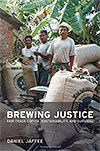
Cuisine du campus
Sautéed swiss chard, tender braised short rib, and Cougar Gold polenta. Tuscan grilled chicken with seasonal heirloom tomatoes, artichoke hearts, lentils, capers, and fresh herbs. Bacon seared Caesar salad with tomato jam toast and avocado Caesar dressing. These are dishes one would expect to find at a fine-dining restaurant, not a dining center at Washington State University.
Your memories of eating campus food, wherever you went to college, might consist of standing in long cafeteria lines where servers plopped their latest mystery food creation on your plate. It’s a totally different and much better experience than many of us remember.
Not only do the dining … » More …





 Michael Pollan has been a leading voice in the re-evaluation of how we eat and farm. The author of Omnivore’s Dilemma, the book selected for this year’s Common Reading, Pollan visited campus in January to talk with the students who had been discussing his book and present a lecture on “The Sun-Food Agenda.” Washington State Magazine’s Tim Steury interviewed him by phone prior to his visit. The following is an edited version of their conversation:
Michael Pollan has been a leading voice in the re-evaluation of how we eat and farm. The author of Omnivore’s Dilemma, the book selected for this year’s Common Reading, Pollan visited campus in January to talk with the students who had been discussing his book and present a lecture on “The Sun-Food Agenda.” Washington State Magazine’s Tim Steury interviewed him by phone prior to his visit. The following is an edited version of their conversation: